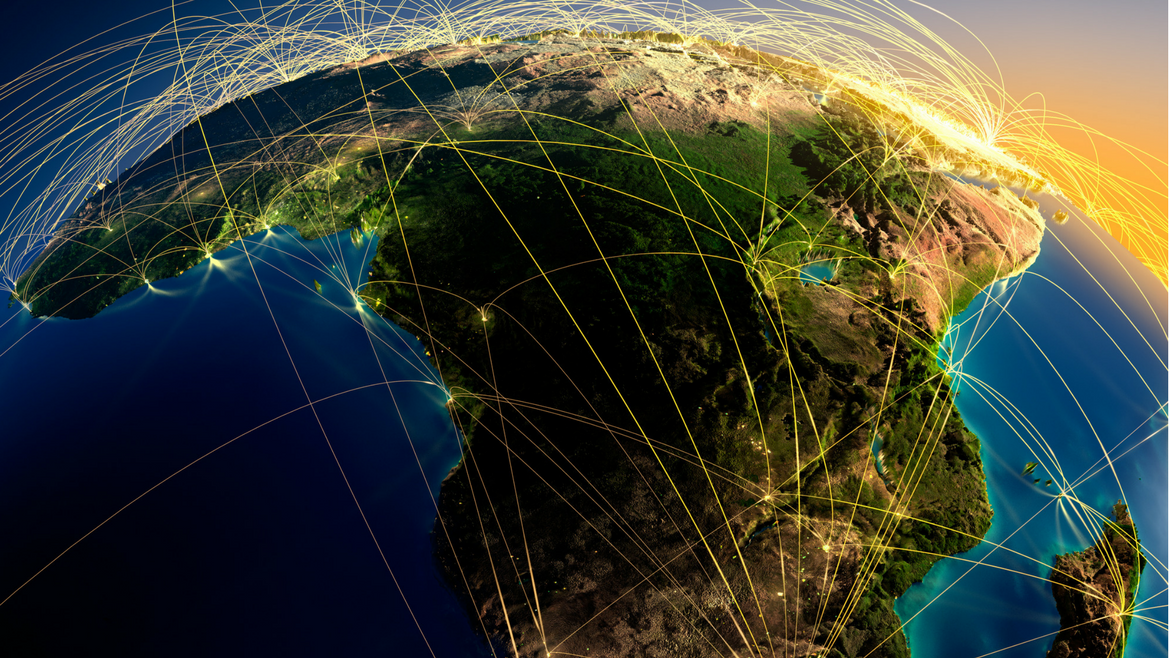By and large, Africa’s economic growth rate and its burgeoning youth population have added weight to the “Africa rising” argument - a term coined to describe Africa’s rapid economic expansion since 2000 - and have shifted the dominant view of a region widely dependant on international aid to one that is engaged in global trade and commerce. However, despite these developments, progress in Sub-Saharan Africa is still patchy and dispersed. Weak structural reforms, corruption and inadequate infrastructure continue to overshadow progression. Low economic growth in 2016 and 2017, largely owing to sluggish external demand and a slowdown in the Chinese economy, has slowed the region’s growth prospects for the medium term. Such reduced levels of growth will undoubtedly add to the pressure already felt by national governments in their capacity to cope with job creation and urban development, alongside bigger issues such as climate change and social unrest.
Meanwhile, Africa’s population continues to grow. According to UN estimates, Africa’s share of the global population is projected to increase from roughly 17% in 2017 to approximately 26% in 2050. The population of Nigeria alone is projected to exceed that of the US by 2050, at which point it would become the third largest country in the world. Importantly, the size of Africa’s future population will be crucial to the size and distribution of the entire global population. With this in mind, it is necessary to consider Africa’s current role in global affairs and in particular its representation within international organisations such as the World Bank, IMF, the UN Security Council and international forums such as the G-20. At present the region’s ability to play an active role in determining its future on the global stage is curbed by its lack of representation and voice in such organisations. This is despite the fact that a common aim of these organisations is to stimulate sustainable development within the region.
Is change possible?
Historically, the creation of the World Bank and IMF stemmed from the dominance of the US in world affairs after the second world war. And similarly to those early years, present-day representation in these organisations and others consists mainly of the US and other developed nations. At the IMF, the Executive Board is composed of 24 directors, of which only two represent a total of 46 countries in Sub-Saharan Africa. This compares with countries such as Germany, France, the UK and US that hold one executive director position each. Although the size of a country’s economy comes into consideration, the number of countries in both Sub-Saharan African groups contrasts notably with others on the Board. At the World Bank three executive directors represent member countries from the region and within the confines of the G-20 the African Union simply holds an observer status.
However the relationship between the region and the West is beginning to change. The growing presence of China in Sub-Saharan Africa and its relationship with numerous African governments is changing the level of dependence and support that these governments expect and need from the West. For example, China’s Belt and Road Initiative, the country’s diplomatic trade strategy, has stimulated large scale investment and job creation in the region. A report published in May 2017 by a global consultancy, EY, stated that levels of China-sourced FDI into Africa increased significantly in 2016 with a 106% increase in projects – making China the third largest investor in the region. Although Sub-Saharan Africa continues to receive a large amount of development aid and investment from Western governments and the likes of the IMF, China’s growing influence in the region offers an alternative. According to Niall Duggan, director of the MSc International Public Policy and Diplomacy Department of Government at University College Cork, Ireland: “Increasingly, China has become a voice for the developing world and has pushed for reforming current bodies of global governance, as well as the creation of new institutions that will allow the developing world to have a greater say in global governance.” However, he cautions against viewing the nature of Chinese involvement as purely benign. Any major changes to the current global governance system from Chinese led initiatives will likely raise questions as to whether these shifts will “truly give a voice to the developing world or will it simply create a Sinocentric system of global governance akin to the current US centric system.”
Doing it for themselves
However, regardless of the influence of external players, Sub-Saharan Africa is making progress in playing a more proactive role in areas such as regional security and in the battle against climate change. One example of progress in regional security is the recent approval of the G5 Sahel Joint Force that comprises of troops from Mali, Mauritania, Burkina Faso, Niger and Chad. The Force is charged with the task of fighting terrorism, drug trafficking and human trafficking in the Sahel region. With regards to climate change the establishment of the Conference of African Heads of State and Government on Climate Change by the African Union has bolstered the region’s ability to take a lead on climate change internationally. Such initiatives will undoubtedly support the region’s case for greater representation on the global stage and the need for wider recognition for the role it can play, however shifts in global governance are likely to play out slowly over the coming years.
The views and opinions expressed in this article are those of the authors and do not necessarily reflect the views of The Economist Intelligence Unit Limited (EIU) or any other member of The Economist Group. The Economist Group (including the EIU) cannot accept any responsibility or liability for reliance by any person on this article or any of the information, opinions or conclusions set out in the article.




